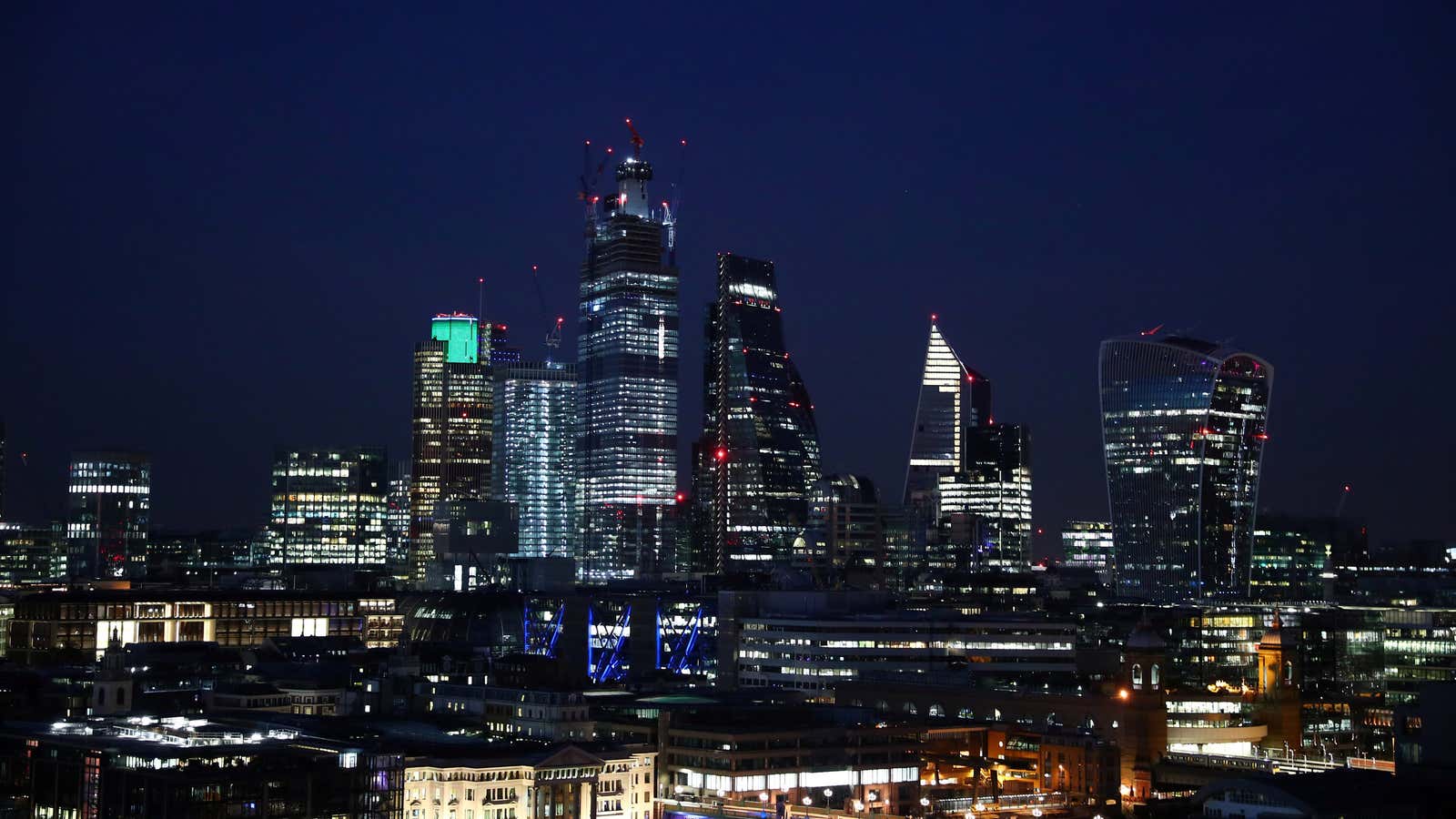Last week, British prime minister Theresa May announced her resignation. With just five months to go until the UK is scheduled to leave the European Union, the nation is now preoccupied by a Conservative Party leadership contest, and Brexit talks have stalled. The sense that the country is heading toward a no-deal Brexit, with no transition agreements, has always frightened the financial sector, which heavily relies (paywall) on frictionless trade links with the EU and free movement of people to attract the best talent.
After three years of limbo over what Brexit might look like, more than $1 trillion in assets being transferred (paywall) out of London, and thousands of jobs moved to the continent, London has lost its spot as the world’s top financial center to New York, according to a survey of financial executives by consultancy Duff & Phelps.
“Last year, Brexit cast a shadow of uncertainty over the United Kingdom’s economy; it has now escalated to a full-blown crisis,” said a report including the survey results published by Duff & Phelps earlier this week.
In the same survey last year, 53% of respondents said London was the world’s preeminent financial center. This year, just 36% say the same. New York has jumped to the top spot, with 52% of respondents saying it’s the leading financial center, up from 42% last year. Five years into the future, 44% see New York as still being the top center, but expectations about Hong Kong are increasing. Duff & Phelps asked 183 executives from 15 countries, though more than half were from the UK and US.
The survey results echo findings from Z/Yen’s Global Financial Centres Index (pdf), which also showed New York nabbing the top spot from London late last year and then extending that lead in the six months to March. The index has been running since 2007, and London has almost always held the leading position in the past.
